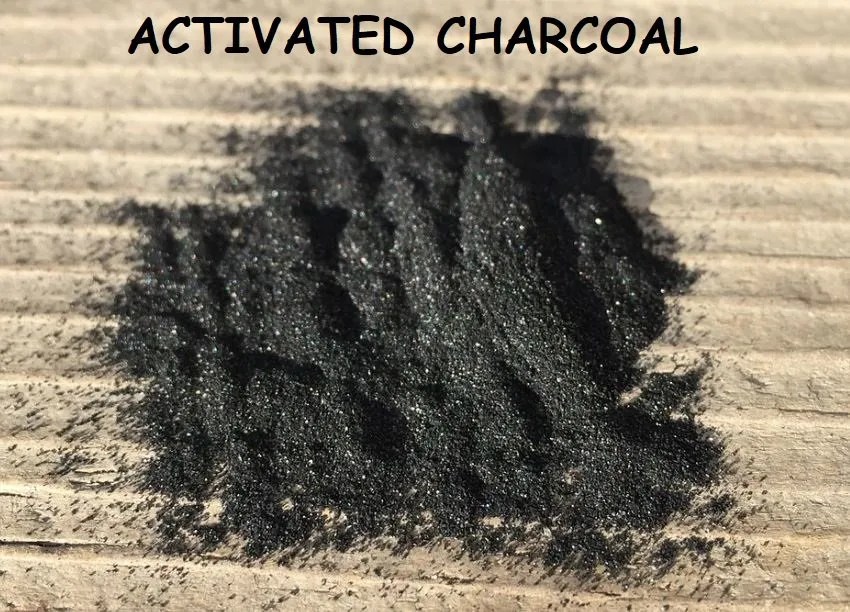
Activated charcoal is a result of high-temperature burning of materials such as wood, coconut shells, or peat. When carbon sources, such as wood, burn, microscopic particles with a significant surface area are produced. Due to its vast surface area, the superfine-activated charcoal that arises from this procedure can bind to and absorb heavy metals, chemicals, and other pollutants.
Activated charcoal appears to be popular right now. It is in everything from toothpaste and cosmetics to beverages and supplements. People are employing activated charcoal increasingly regularly in their daily lives in the goal of benefiting from its great cleansing properties, but is it something you should also use and how much should you consume?
This article will explain the benefits of activated charcoal, how much you should take, and where you can get it.
Functions of activated charcoal
Humans have leveraged on the potential of activated charcoal to detoxify the body for hundreds of years. Aside from basic detoxification, doctors have employed activated charcoal to treat illnesses such as drug overdose and poisoning as well as to relieve symptoms such as diarrhea. It is no wonder that activated charcoal is making a strong resurgence as people and businesses find new applications and markets for it.
Detox pills abound, many claiming to do the same thing: clear the body of dangerous poisons.
Activated charcoal, like many supplements, is enticing since it is inexpensive (no prescription required), easy to use, and helps eliminate toxins from the body.
However, the popularity of activated charcoal extends beyond supplements to detox drinks, toothpaste, skin-care products, cocktails, and ice cream. Activated charcoal can also be used as a natural cure for a variety of pet ailments. For example, activated charcoal is an effective treatment for the virus-infected illness known as parvo, which can cause hazardous amounts of dehydration. Furthermore, while most of us vaccinate our pets to protect them, the animal may respond to the immunization at times. Activated charcoal may assist to minimize vaccination response symptoms and draw out contaminants
Benefits of Activated Charcoal
Activated charcoal has undeniable health benefits. However, the extent to which it is effective will most likely vary from person to person on an individual basis.
Here are a few of its possible health benefits.
- Mold elimination
Molds can be cleaned at home with activated charcoal. Mold-infested homes are frequently hazardous to one’s health. This mold can be treated with activated charcoal.
- Toxin elimination on an emergency basis
Activated charcoal can be used efficiently in the event of an accidental or intentional overdose of medicinal medicines. Activated charcoal can be used to treat aspirin, opium, cocaine, acetaminophen, and morphine overdoses. However, it is critical to consume the recommended amount of activated charcoal within an hour of intake.
- Activated charcoal is beneficial to the skin
Activated charcoal can be used to treat acne, body odor, and discomfort caused by skin bites. Activated charcoal can also be used to treat rashes produced poison ivy, oak, or snake bites. Apply one capsule of activated charcoal to 1/2 table spoon of coconut oil to the affected area to cure mosquito bites or bee stings. Repeat every 30 minutes until the soreness has subsided.
Acne is treated with activated charcoal, which is mixed with aloe vera gel and applied gently to the face.
- It is a good digestive tract cleanser
Using activated charcoal aids in the maintenance of a clean digestive tract by removing toxins that cause allergies, compromise the immune system, and cause oxidative damage.
Consuming only organic fruits and vegetables is required for digestive cleanses using activated charcoal. Make sure to drink plenty of water when using activated charcoal.
- Activated charcoal is good for electroplating solution purification
One significant industrial application is the use of activated carbon in metal finishing to purify electroplating solutions. It is, for example, the primary purification procedure used to remove organic contaminants from bright nickel plating solutions. A number of organic chemicals are added to plating solutions to improve deposit characteristics and to improve features like as brightness, smoothness, ductility, and so on. Organic additives generate undesirable breakdown products in solution as a result of direct current passage and electrolytic reactions of anodic oxidation and cathodic reduction. Their excessive accumulation can have a negative impact on plating quality and the physical properties of plated metal. Such contaminants are removed by activated carbon treatment, which restores plating performance to the optimum level.
- Beneficial in livestock production
Organic farmers are permitted to utilize activated carbon (charcoal) in both cattle production and wine production. It is employed as a pesticide, animal feed addition, processing assistance, nonagricultural ingredient, and disinfection in livestock production. Activated carbon is permitted for use as a processing agent in organic winemaking to absorb brown color pigments from white grape concentrates.
- Purification of distilled alcohol
Activated carbon filters (AC filters) can be used to remove organic contaminants from vodka and whiskey that can alter the color, taste, and odor. Passing organically impure vodka through an activated carbon filter at the right flow rate yields vodka with the same alcohol level but dramatically higher organic purity, as measured by odor and taste.
- Purification of gas
Activated carbon filters are commonly used in compressed air and gas purification to remove oil vapors, odor, and other hydrocarbons from the air. The most typical designs employ a one- or two-stage filtration concept with activated carbon integrated in the filter media. The activated carbon filters are used to retain radioactive gases in the air drawn from the turbine condenser of a nuclear boiling water reactor. The vast charcoal layers absorb and hold these gases as they swiftly degrade to non-radioactive solid forms. The solids are trapped in the charcoal particles when the filtered air flows through.
- Chemical purification
On a laboratory scale, activated carbon is widely used to purify solutions of organic molecules that contain undesired colored organic contaminants. Filtration over activated carbon serves the same purpose in large-scale fine chemical and pharmaceutical processes. The carbon is either combined with the solution or subsequently filtered off, or it is immobilized in a filter.
- Activated charcoal is a good food additive
In 2016, activated, food-grade charcoal became a food trend, being used as an addition to lend a “slightly smoky” flavor and a dark hue to goods such as hotdogs, ice cream, pizza bases, and bagels. People using medicine, such as birth control pills and antidepressants, are recommended to avoid novelty meals or drinks that include activated charcoal coloring, as this can render the medication ineffective.
- Activated charcoal is a good antidiarrheal substance
Activated charcoal can also be used to treat diarrhea by reducing bacterial absorption in the body. Some claim that activated charcoal can help with weight loss, despite the fact that it is not and should not be used as a weight-loss drug. Activated charcoal has also been shown to reduce intestinal gas, bloating, and abdominal cramps. Activated charcoal can be taken as a capsule, liquid, or powder, and because it has no taste, it can be mixed into any non-acidic juice of your choice. Tablets and capsules are the least expensive and, in many cases, the best investments.
- Controlling cholesterol
Activated charcoal may aid in cholesterol reduction. Consuming activated charcoal may potentially benefit some persons with elevated cholesterol by decreasing low-density lipoprotein (LDL) cholesterol levels. Activated charcoal has the same effects as pharmaceutical cholesterol medication.
- Compost
Activated charcoal in compost may help keep the compost sweeter. The activated carbon will extend the life of the compost.
- Activated charcoal is a good remedy for pet attacks
Depending on where you live, your pets may be vulnerable to bites from insects or even snakes. An activated carbon poultice will pull out the toxin and any associated infection. Constipation may occur as a side effect in your pet. When using activated charcoal, make sure your pet gets enough of water. The added water will aid the pets’ digestive movements.
- Can treat poisoning and drug overdose effectively in a clinical setting
Due its capacity to trap poisons in the gut, this component can be used to treat drug overdoses and poisonings in an emergency. When delivered soon after a drug overdose or poisoning, activated charcoal is most effective. Furthermore, many people do not experience symptoms for at least two hours after swallowing a toxin, implying that the majority of the poison has already been absorbed or transported into the intestine. Activated charcoal may help lower the amount absorbed if digestion has slowed. However, activated charcoal may not be successful in all cases of poisoning and overdose and should only be used in exceptional circumstances.
- Activated charcoal can reduce fish odor syndrome symptoms
In those with trimethylaminuria (TMAU), often known as fish odor syndrome, activated charcoal may help eliminate unpleasant odors. TMAU is a genetic condition in which your body accumulates trimethylamine (TMA), a substance that smells like rotting fish.
TMA is normally converted into an odorless chemical by your body before excreting it through urine, but persons with TMAU lack the enzyme required to perform this conversion. TMA accumulates and enters urine, sweat, and breath, resulting in a foul, fishy stench. However, the porous surface of activated charcoal may bind to tiny, odorous molecules like TMA, increasing their excretion. Combining activated charcoal with medications and dietary changes may help persons with TMAU minimize the fishy odor.
- Activated charcoal is good for making shampoo
Activated charcoal is found in certain shampoos and other hair care products. These items are said to help eliminate oil and grime from hair.
- Storage of fuel
The capacity of various activated carbons to store natural gas and hydrogen gas is being investigated. The porous substance functions as a sponge for various gases. Van der Waals forces attract the gas to the carbon substance. When subjected to higher temperatures, the gas can be desorbed and either combusted to do work or, in the case of hydrogen gas, extracted for use in a hydrogen fuel cell. Gas storage in activated carbons is an appealing form of gas storage because the gas can be held in a low pressure, low mass, low volume environment that is considerably more practicable than cumbersome on-board pressure tanks in vehicles.
What dosage of activated charcoal should you take?
If you want to use activated charcoal for cosmetic or home purposes, it is always advisable to follow the dose guidelines on the box or as advised by your doctor. Doses differ depending on a person’s health or symptoms. Doctors may prescribe 50 to 100 grams for gastrointestinal decontamination. The dosage for intestinal gas could range from 500 to 1,000 mg per day. Lowering LDL levels requires a lower daily intake of 4 to 32 grams.
However, it is advisable to seek medical attention right away if you suspect drug poisoning. A medical practitioner, on the other hand, may deliver a dose of 50–100 grams of activated charcoal as quickly as possible.
Depending on their age, children are usually given a lesser dose of 10–50 grams. You can also take 1.5 grams to treat fishy odor disease and 4–32 grams daily to enhance kidney function in end-stage kidney disease patients.
Some doctors or naturopathic doctors may recommend using activated charcoal once or twice daily for detox purposes. Your healthcare practitioner may offer you with a better understanding of an acceptable dosage, and they may also write you a prescription for activated charcoal. Take activated charcoal only after consulting with your doctor. It is possible to overdose on activated charcoal, however this is unlikely to result in death.
If you suspect you have overdosed on activated charcoal, you should seek emergency medical treatment. Over dosage symptoms may include an allergic response, vomiting, or extreme stomach pain.
Where to buy activated charcoal?
Many online shops, including Google Express and Amazon, as well as supplement stores such as GNC, sell activated charcoal in pill and powder form. As with any supplement, observe the label’s dose and directions, and only buy from reliable brands that have been third-party tested. Again, your healthcare team can assist you in locating a reputable product that is appropriate for your specific health needs.
Conclusion
Since activated charcoal can interfere with other medications, consult your doctor before using it if you are presently using any. You should also start at the lower end of the prescribed dose to evaluate how you react before increasing the amount.




